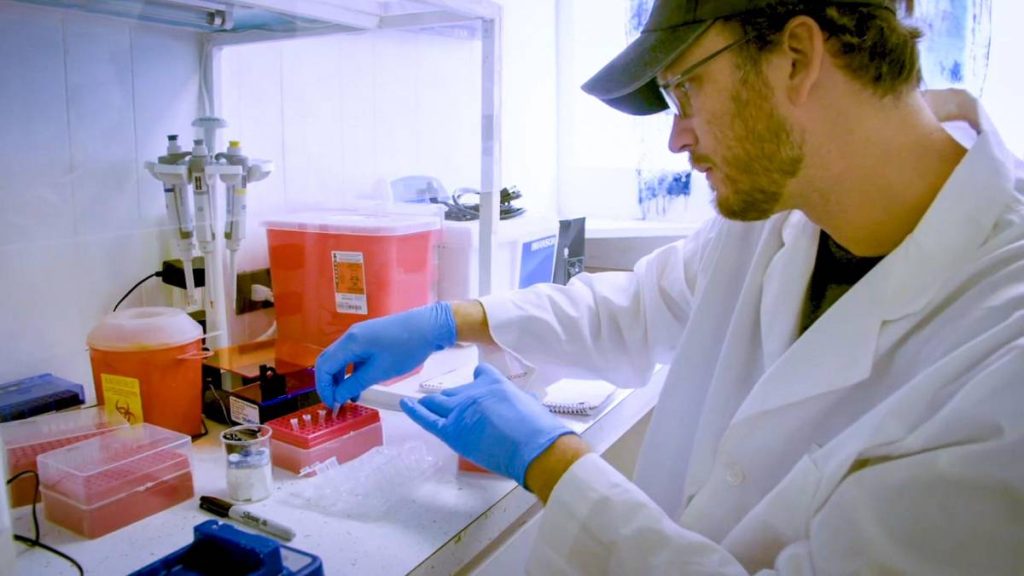UH Researchers Identify Deadly Marine Virus in Deceased Dolphin
University of Hawaiʻi at Mānoa researchers have confirmed the presence a novel strain of morbillivirus, a marine mammal disease responsible for deadly outbreaks among dolphins and whales worldwide, in local waters.
The UH Health and Stranding Lab conducted the necropsy (an animal autopsy) on a Fraser’s dolphin that was stranded on Maui in 2018, publishing the report of the morbillivirus discovery more than two years later. It is the first such case linked to this dolphin species, according to release from the university.
Fraser’s dolphins are a poorly known pelagic species found throughout the world’s oceans. This research identifies morbillivirus as a significant threat to Fraser’s dolphins, which are highly social and interact closely with other dolphins and whales in Hawaiian waters.
Two novel morbillivirus strains were previously discovered in dolphins in Western Australia and Brazil that led to unusual mortality events with at least 50 dolphins dying in Australia, and more than 200 dolphins dying in Brazil.
The discovery led to a suite of independent tests (immunohistochemistry, culturing of the virus and transmission electron microscopy) to confirm the finding and understand the role of this distinct morbillivirus in the pathology of the Fraser’s dolphin. The UH Health and Stranding Lab only recovers less than 5% of the dolphins and whales that die in Hawaiian waters, which makes detecting disease outbreaks difficult.
The finding has alerted scientists and marine wildlife managers to the potential for a novel morbillivirus outbreak in Hawaiʻi’s dolphins and whales. The next step in determining if this virus is circulating in the Central Pacific is to focus on antibody testing of Hawaiian dolphins and whales. Further research would aid in evaluating the vulnerability of Hawaiian species to the novel Fraser’s morbillivirus, the university said.
Furthermore, this finding provides further support for National Oceanic and Atmospheric Administration’s (NOAA) Hawaiian monk seal morbillivirus vaccination program. The vaccination program aims to reach morbillivirus herd immunity in Hawaiʻi’s endangered monk seals.
The university stressed the importance of the public’s role in rapid reporting of whale and dolphin strandings and the value of thoroughly examining every carcass. Sightings of dead or distressed marine mammals can be reported to the toll-free statewide NOAA Marine Wildlife Hotline at 1(888) 256-9840.
















